PTSD, Kellie Stapleton, and How Much Must We Take?
This is about Post Traumatic Stress Disorder (ptsd) and how being the parent of a child with abusive behavior or someone in an abusive situation sometimes leaves few good choices.
This post does not in any way mean that everyone who has autism or a mental health disorder will exhibit physical or other violence.
It is meant to open your eyes and hopefully your mind to what is happening with our youth and the parents who are desperately trying to help them.
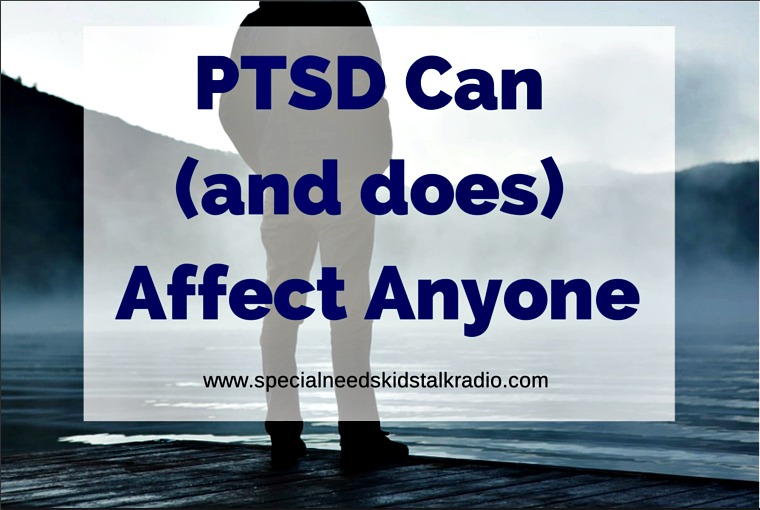
PTSD Can (and does) Affect Anyone
Millions of people are affected by PTSD (Post Traumatic Stress Syndrome) each year and it can affect anyone in any age group.
PTSD has been talked about in the media as a serious problem that affects soldiers returning from combat missions that are traumatic.
As a result, those soldiers are what most people think about when they hear, ‘PTSD’. The fact is that soldiers aren’t the only ones who can be drastically affected by the debilitating reality of traumatic experiences – and it doesn’t have to result from combat.
- car accidents
- storms
- plane crashes
- rape
- physical abuse
- emotional abuse
Those are all very real reasons that people have PTSD.
My daughter who is no 16 went through a tornado with us when she was 3 years old. It crumbled the town we lived in from our back yard north. Our house lifted off the foundation and sat right back down. We saw it from the basement of our house as it happened.
She was so upset when it was happening that she threw up on me. For years, and even a little bit today, she was frightened of storms. Even just regular thunder and lightning.
What does PTSD look like?
Those who are experiencing PTSD have likely had a “fight or flight” response to a traumatic experience. This normal reaction to impending danger is ingrained in our psyche to prevent us from harm, but in PTSD, that natural response may deeply change a person.
Even though the person is out of danger and no longer needs to be afraid, he or she often reacts to non-threatening experiences and events with a “fight or flight” response.
So, the dog barks loudly, or unexpectedly and it sends the PTSD patient off the deep end – running or retreating away from the dog or from everything for the rest of the day. Or, alternatively, the PTSD patient kicks the bloody pulp out of the dog.
Both are an exaggerated response of flight or fight.
There are 3 main characteristics of PTSD manifestation.
1. Exaggerated emotional and physical responses. A person with PTSD might become frightened from loud noises or being surprised.
My daughter would hide under the table and cry inconsolabley at the first sound of thunder – even miles away.
2. Troubling Memories
PTSD may cause a person to frequently recollect the traumatic event. He may become very irrational and emotions may run wild because he’s mentally ‘rewinding’ the event and playing it in his mind over and over.
3. Problems Relating to Others
The person with PTSD may have difficulty trusting anyone and become suspicious and jealous of those who love and want the best for them. The patient is often angry and depressed and extremely detached from loved ones. PTSD patients are very much stuck in their own head, often believing that no one understands them. This makes relationships crumble – all relationships.
It’s also important to point out that the person may not recognize that something is wrong, or different, with their behaviors.
PTSD is stress, and stress can affect a person in strange ways. It is debilitating. Basic tasks like grooming and answering the door at home become increasingly difficult, because the person can’t comprehend that what he’s afraid of isn’t a real threat at that moment. Jobs are often worse because the mistrust of people is right in his face – he can’t avoid people at work, right?
Who Can Be Affected by PTSD?
Kids
As I listed above, other than traumatic combat experiences, there are events that might precipitate PTSD. People of all ages and who have experienced all types of trauma may fall victim to this devastating disorder.
Children who have experienced trauma are one segment of the population. Children are some of the most likely victims to be affected by PTSD and react to it in various ways that could cause mental and physical illnesses.
Events such as car accidents, being bullied at school, violence at home, a loved one’s death or illness, child abuse or a serious accident can precipitate PTSD in children.
Symptoms of PTSD in children include re-living the experience, nightmares, avoiding situations, blocking out feelings and memory of the event and being easily frightened of events that pose no threat of harm.
If you notice some or all of these symptoms of PTSD in a child who has been through a traumatic event, make sure you seek help immediately from a health care professional.
Women
Women are much more likely than men to develop PTSD and the reasons could stem from domestic violence, being neglected or abused as a child, being raped, physically attacked, being in accidents, having a crushing medical diagnosis or experiencing the loss of a child or other loved one.
Symptoms of PTSD in women might include severe depression, abuse of drugs or alcohol, developing an eating disorder or increased risk of heart disease, rheumatoid arthritis and chronic pain. Suicidal thoughts or outrageous “acting out” can also happen.
Treatment for PTSD in women might include anti-depressants or anxiety medication prescribed by a health care professional or therapy with a person licensed in counseling trauma victims. Therapy and talk therapy are also helpful.
People who are alone
People who are alone can suffer from PTSD. Although some people who are alone in life may enjoy it, most of us need a help and support system that we can call on when depressed or medically impaired. Those who have no one to talk to or interact with are much more likely to develop PTSD.
The elderly are sometimes at risk for PTSD when they’re abruptly pulled away from their home and placed in a nursing facility. Friends may have passed on and family may live in other areas of the world.
It’s a frightening experience to the elderly to be alone. Treatment can range from medication to counseling and helping the victim join in other activities as much as possible.
1st Responders
Emergency response workers such as firefighters, medics, pilots and policemen are likely to develop PTSD if they witness or are part of a traumatic event where loss of life or devastation is involved.
Anyone is at risk
But really, anyone who’s been through a traumatic experience is at risk. Men, women, children and the elderly may all experience PTSD if they’re victims of extreme trauma.
A few more PTSD causing events to consider that might not seem that traumatic so some:
- sexual molestation
- threatened by someone with a weapon
- kidnapping
- devastating illness
- natural disasters like hurricanes, earth quakes and tornadoes
- divorce, bankruptcy, being taken to court
Symptoms of PTSD you should look for are the same as the above, including suicidal thoughts, alcohol or drug abuse and depression.
Complications of PTSD are varied, including the disruption it can cause in jobs, relationships and being able to function on a daily basis to complete even the most menial tasks or experiencing enjoyment in anything. PTSD shouldn’t be ignored.
It won’t go away without treatment.
Why there’s so much controversy about Kelli Stapleton
Did Kelli have PTSD? I’m not making an excuse for her! I’m curious. The mind is fascinating to me. If I were younger, I’d go back to school to study it.
Kelli Stapleton tried to murder her daughter and kill herself last year. She was recently on the Dr. Phill show in an interview with Phill while she was in prison awaiting her sentence. I can’t stand Dr. Phill and I’m sure that she was portrayed, along with her daughter and family in a way that can not fully explain the desperation that they all went through.
One of Kellie’s daughters had extreme violent behaviors that were often directed at her mother and a sibling. Kellie blacked out and was in the hospital more than once due to the severity of her daughter’s violence.
Do I think she should get away with murder? No, of course not. She did try to kill herself also, and I think that says a lot about the situation and how desperate she was. I’m not here to pass judgement and no one else should be either.
No matter how much her daughter beat her, murder isn’t the answer. But, what was the answer? For her, for her daughter, for any of us who deal with violent behaviors in our lives?
My understanding is that the hope she had for her daughter to have continued supports (which has been in place, then yanked away on short notice) is what put her over the edge.
Still, murder and suicide are not the answer.
The other side of the debate
I follow some groups that are run by adults who have autism because I actually want to understand (at least try to) what my daughter’s mind might be like. I’ve spent weeks reading about their thoughts on Kelli’s case.
I have to be very careful here, in how I word these thoughts because I do not have autism and I’ve seen what amounts to nearly hate speech from some members of these groups to parents. I’m trying not to disrespect anyone. I’m trying to understand it all better.
From someone who has autism, being murdered, rather than fought for, is not okay. In fact, I read that it is dehumanizing, degrading and disrespectful. Well, of course it is. Their sentiment is that they are still human, still deserve the same rights. That their behaviors are caused by something and we should figure it out, not punish it.
Unfortunately, Kelli also blogged about the very hard stuff, and apparently in a hateful way that, rather than being seen a “vent” is taken as disrespectful to her daughter. She told and showed what it was like to live with her daughter during the good and bad.
As adults with autism, they see this as the ultimate disrespect of her daughter – showing the worst parts of their lives to the world. Without her daughter’s permission.
I can understand that. I certainly wouldn’t want my bad behavior shown to the entire world via youtube.
I don’t pretend to know the answer for that case or anyone else’s. I don’t like the answers that this group is giving either and I do not have my own answers. My point of view is that education needs to happen – for other parents and for our kids too. Sometimes sharing, even when it hurts, is the only way we know how to ask for help.
So, I’m still left with – what does a parent do in a situation where they are at a mental breaking point, all their known options have fallen through, and they have nothing left inside to fight with?
My own PTSD
Now, I’ll share something pretty personal and it’s controversial to some because I’m sharing something about my family’s worst behaviors. Don’t worry. There’s no video.
My daughter can be physically abusive. She has hit, kicked, punched, bit and thrown things at me and her sister and her gramma (who lives with us). She’s only 12.
My daughter, unlike some of these national news cases, has never beat me to the point of bruises or hospitalisation, but I’ve been scared and hopeless, none the less.
Is she a monster? No. Far from it.
Have I ever wanted her dead? No.
In fact, I want her to be happy and I want to provide a safe home for my family.
Did we, do we, have PTSD? Probably.
Most parents, especially single parents, will understand the plight of Kelli and Angie Robinson and Karen McCarron. They all tried to murder their children and some tried to take their own life. Angie succeeded at both.
I did not say parent will understand wanting to take the life of their child or their own life, for that matter. But, many can understand how difficult it is to manage abusive behaviors on a daily basis.
I see so many parents struggling with sending their kids to treatment facilities for months at a time. Is it right? Will they be further harmed? Will it actually help? In many cases, it makes a huge difference for the child. We considered it at one time.
- Is it right?
- Will they be further harmed?
- Will it actually help?
In many cases, it makes a huge difference for the child.
The difficulty comes when the child is back at home. How do you maintain the structure and support that can be provided 24 hours a day by trained professionals? It’s hard and it takes a team. A team that many parents can’t get.
Back to PTSD
PTSD makes you react in weird and strange ways, remember? When you’ve experienced the abuse for a while, you are expecting it, no matter what kind of breakthroughs and progress your child has made. You might even provoke their behavior because we humans are creatures of habit.
Just because your kid got help, doesn’t mean you did. Often, insurance will pay for your child to spend 2 months in a mental health program, but doesn’t provide for you or the family to get counseling or therapy.
So, yay! Your kid is better, but you aren’t. I’ve said this to my child’s therapists and mental health team for years.
We need someone to point out to us how far my daughter has come (and she’s a whole different person than she was 2 years ago!).
I want to do better, but I don’t always know how.
Think about it.
If you are in a relationship with an abusive partner (husband/wife, ect.), everyone will tell you to get out. GET OUT! they tell you.
They might even stage an intervention. But, you can’t do that when you are a parent. Well, okay, you could. But that’s where the guilt comes in. That’s where people start to judge you about abandoning your kids, about not trying hard enough.
If you give up your kid to the state, to foster parents, to anyone else, doesn’t that make you a bad parent? That’s a rhetorical question. Of course, it doesn’t make you a bad parent.
But, those feelings rear up inside your own head. When you are given the task to care for a child, a good parent will question everything they do. But, those feelings rear up inside your own head. When you are given the task to care for a child, a good parent will question everything they do.
I can’t pretend to know what was in those parent’s heads when they crossed the line to needing to end it all. I do understand the heartbreak, guilt and desperation.
I do understand the depression, the trauma caused by the stress of the situation.
I do understand the PTSD for an entire family.
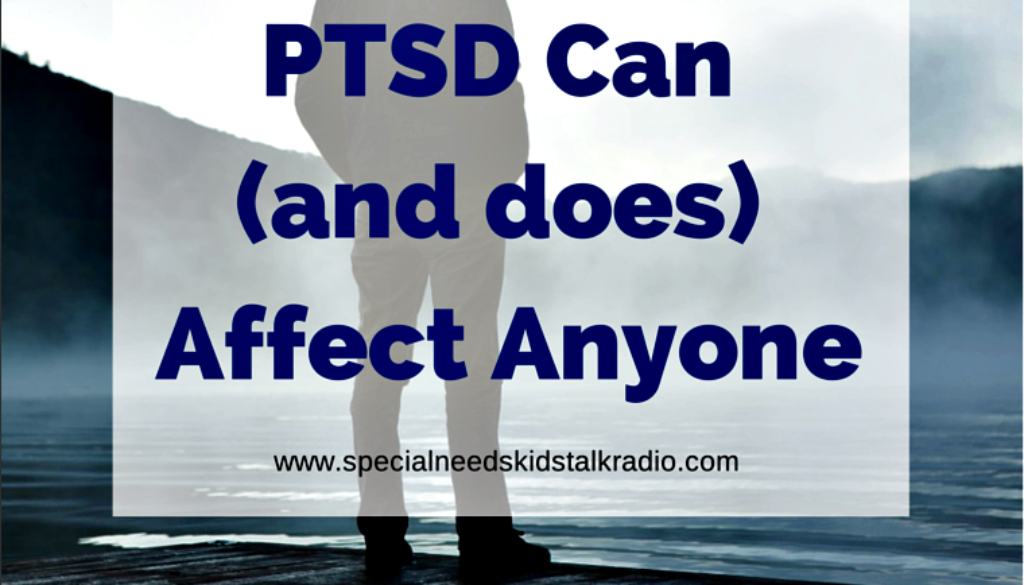
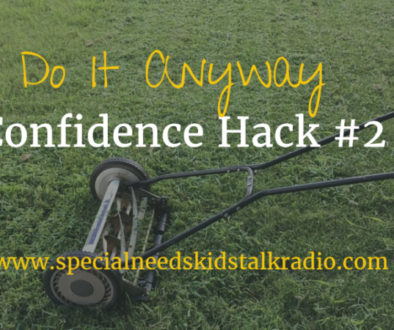
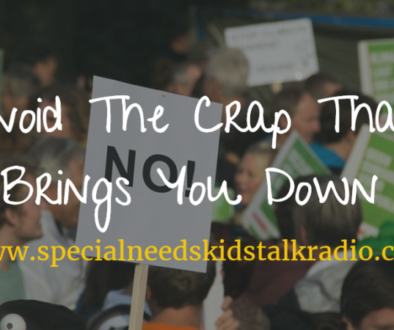
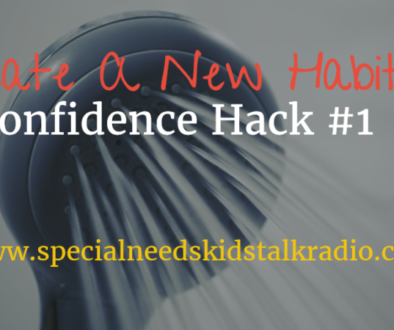
Rob Knowlan
10/25/2014 @ 4:20 PM
Wow, that’s a really tough subject to handle respectfully and thoughtfully. I believe you have really hit the mark. PTSD is definitely not just a battlefield condition. It is a massive overwhelm of one’s coping mechanisms. Those vary from person to person, as you explained. Thanks for sharing your thoughts and experiences on this very difficult topic.
Rob Knowlan recently posted…Classic Christmas Toys Available Today
Victoria Virgo
10/23/2014 @ 5:36 AM
I have only heard of this condition in connection with soldiers returning from war. Thank you for sharing a different viewpoint and situation where this occurs. I am sure that this will help other families understand that they are not alone.
Victoria Virgo recently posted…My Top Tools for Productivity â The Tick Tock Clock
Sue Fleckenstein
10/22/2014 @ 3:05 PM
Thanks for this post Jenn. I have heard lots about this topic from the viewpoint of local first responders. Thank you so much for bringing attention to this topic. It really does warrant further discussion in the open. I hope your daughter heals well.
Thank you again!
Sue Fleckenstein recently posted…Writing Kids Books for Kindle
Jeanne Melanson
10/17/2014 @ 9:15 PM
Oh my goodness. This was quite an interesting article. I always think of soldiers too when I hear PTSD. I never thought of it in the ways you are describing, but of course it makes perfect sense.
I heard about the case with Kelli but haven’t followed it. I did click on your link to read her blog though. Wow. What a disaster. It hit me in the heart when she said,
“I have ruined everything. I should have stroked egos.”
You’ve picqued my interest about this topic now. Thanks for the eye-opening post, and I wish you and your daughter much healing.
Jeanne Melanson recently posted…Teach Your Dog Good Behavior, Obedience Training Guide
sojourner
10/17/2014 @ 9:07 PM
What a complicated affliction. I’ve never given too much thought to PTSD. I definitely assumed it was something soldiers got. The connection between PTSD and kids is enlightening since I’m a teacher.
Stefanie @ Calledhis.com
10/17/2014 @ 11:37 AM
I love this post. Pinning! I don’t think people have enough awareness about how serious PTSD is, or what can cause it. I think it’s so important you’re spreading awareness.
Stefanie @ Calledhis.com recently posted…5 Things I Wish I’d Done Before Getting Engaged – Guest Post @ Satisfaction Through Christ
Cynthia Dixon
10/17/2014 @ 8:37 AM
Jenn this is a very interesting article. I’ve never thought about PTSD in this way. You’ve really shed a lot of light on this troubling condition and all the things that can cause it. I know people who are victims of war. They’re not in the armed forces but were actually held in concentration camps.
Their PTSD is real and effects them differently. I don’t know a lot about the disorder, but often associate it with those in the military. You’ve given me a lot to think about. I know your article will help a lot of people see PTSD differently.
Cynthia Dixon recently posted…One of the main reasons I love being an Internet Marketer
Lynn
10/16/2014 @ 9:32 PM
This article was quite insightful. I do tend to think of soldiers when I think of PTSD. You have given me a new awareness. Thank you.
Maggie C
10/16/2014 @ 9:01 PM
Wow…you raised a lot of good points here. I do wonder about the families of non-typical children, especially as the children get older. I can’t even imagine how hard that is, and then to have nowhere to “vent”? That’s hard.
I appreciate you sharing your personal story.
Maggie C recently posted…October Ultimate Cash Giveaway (Open worldwide, ends 11/13)
Laurel Regan
10/16/2014 @ 8:40 PM
Very interesting and moving post – lots of food for thought about a devastating disorder. I wish you and your family all the best.
Laurel Regan recently posted…100 Happy Days – Day 34
Mel Day
10/16/2014 @ 3:41 PM
Wow. That’s a powerful story. You’ve covered the area of PTSD well and I can see how you’re trying to understand it because of how much it personally means to you and your family. I have no idea how I would cope in a your circumstances but you hit the nail on the head: as a parent you can’t walk away without consequences. Sounds like there’s an opportunity for someone to start a movement to get support for families of those in a similar situation. Thank you for sharing.
Mel Day recently posted…Contests and Giveaways – Tip
Alexandria Gunn
10/16/2014 @ 1:41 PM
It’s such a difficult disorder to go through. A friend was and still is going through it when I first met him. At first I struggled to understand what was setting him off, and then it’s difficult to find the right things to do or say. Thanks for sharing this well-written post. It will be an eye-opener for many.
Alexandria Gunn recently posted…Making Money Blogging With Products
Mary Hill
10/16/2014 @ 1:41 PM
Very raw and poignant look at a very provocative subject. I have been abused in the past, but I don’t has PTSD. I worry about my daughter because of turbulent times in our family. I am going to take her to counseling. Her father and I love her so much and she was a victim when our grandson was abused by his father. Social services took him and his sister away from us. It was a terrible time. Thanks for sharing. You are not alone.
Mary Hill recently posted…Barbecue, Hot-air Balloons and Krispy Kreme
Sheryl at LibertyHillHouse.com
10/16/2014 @ 1:35 PM
I can’t even express how necessary it was for me to read this today. Hugs to you and your daughter. Do you happen to have a list of PTSD resources that have helped you, as the parent, to deal with this?
Sheryl at LibertyHillHouse.com recently posted…Modern Era Booklist: Leveled Readers